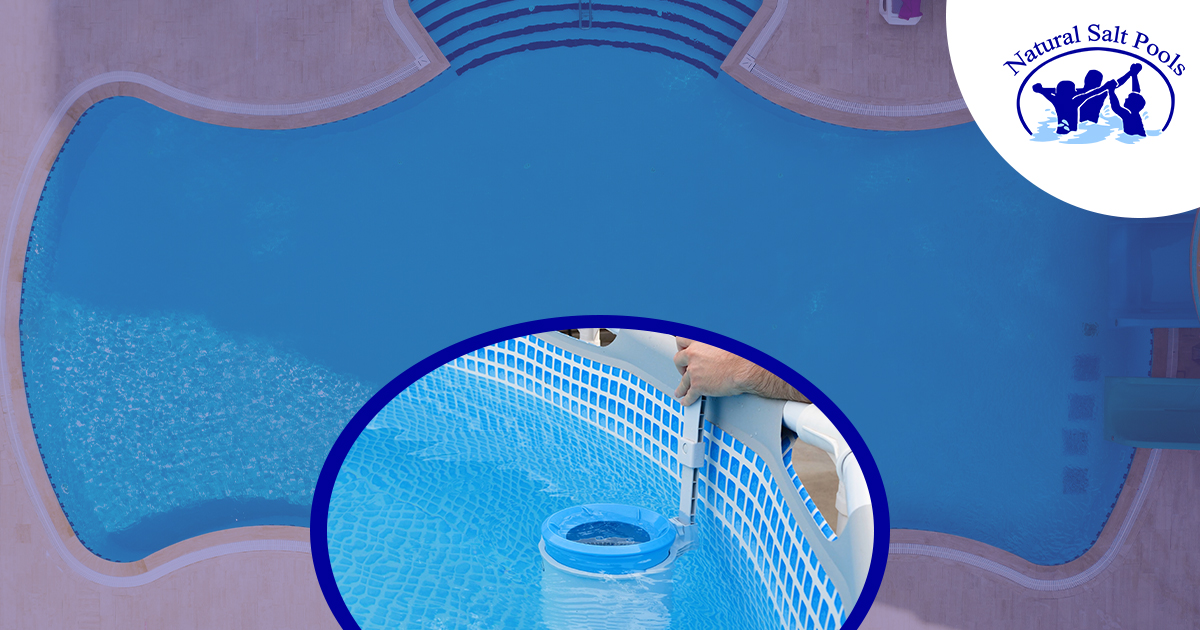Saltwater swimming pools have become more popular over the decades. Saltwater swimming pools seem like the obvious choice as they don’t need harsh chemicals, careful chemical monitoring, or chlorine, but they have drawbacks. As one of the top cleaning companies in Hawaii, we want you to be aware of the pool care challenges you might encounter if you decide on a saltwater pool:
Salt can be dangerous and corrosive: Saltwater swimming pools are frequently marketed as being softer and more enjoyable because they lack the strong chlorine smell. Although this is true, salt is also corrosive and can harm your pool deck as well as the pool equipment. Surfaces can become stained, pitted, and corroded, including light covers, metal ladders, and copper heating elements. Saltwater can also harm pool decks and patios made of concrete, natural stone, or brick. In hot and dry places where rain is infrequent enough to dilute and wash away salt, pool deck damage from saltwater splash-out is more prevalent. In cracks in concrete and softer stones, evaporation causes salt to recrystallize, applying pressure to the substance. Even concrete will crack and deteriorate over time.
Scale can be a serious problem: All pool owners must deal with scale, a natural byproduct of hard water and evaporation. On the other hand, saltwater pools are more vulnerable to significant scale problems. Simply put, scale is a mineral buildup, primarily calcium, that has accumulated on your pool’s surfaces. If swimming pools are not cleaned on a regular basis, scale deposits will thicken, become more unsightly, and be hard to remove. The scale problem in saltwater pools can be more widespread than in regular pools, which typically develop a white scale deposit at the waterline. This makes the entire pool surface feel very rough. Scale in a saltwater swimming pool is largely a result of the salt itself, which contains both inorganic and organic contaminants. In order to combat scale, you’ll need to take a number of actions during pool maintenance:
- Opt for mechanically evaporated salt instead of rock salt that has been mined or solar salt.
- Make use of pool cleaners made especially for saltwater pools. Regular pool supplies include sulfates and phosphorus-based chemicals, which add to the ECG’s scale issue.
- To make sure the pH is appropriate, test the water frequently.
- Make plans for routine saltwater pool cleaning. While routine pool tile cleaning is also necessary to remove scale, pool water cleaning is crucial for removing contaminants and scale. Your ECG will also need routine upkeep and cleaning in order to operate properly.
Natural Salt Pools for your pool care in Hawaii
Natural Salt Pools LLC offers the best saltwater pool maintenance and pool care in Hawaii , with the skills needed to care for your residential or commercial saltwater pools. Remember Natural Salt Pools LLC for the best commercial and residential pool cleaning and maintenance assistance, as well as counseling about the pool and everything you need to know about it. So, remember to call us, book an appointment, or consult with us about any pool-related inquiry at any time within Hawaii and the surrounding regions for pool servicing.



Leave a Reply